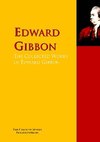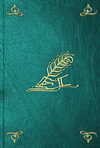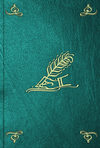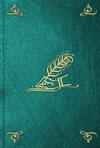Loe raamatut: «Private Letters of Edward Gibbon (1753-1794) Volume 1 (of 2)», lehekülg 6
31.
To his Father
Lausanne, February the 1st, 1764.
Dear Sir,
I had the pleasure of your letter last saturday, & found with great satisfaction that you & Mrs. Gibbon were very well, and that everything went on as usual in our part of the world. I am very proud of my new dignity,62 tho' I have not as yet communicated my promotion to my countrymen here. We have three or four honest regulars in the house with whom I am in a constant state of war, which I have tolerably maintained as yet notwithstanding their great superiority of number: I hope you continue to be well-pleased with our Lord Lieutenant, and that he is in every thing the reverse of his predecessors.
I am much obliged to you, Dear Sir, for your goodness in paying the bill I drew upon you in December last, but am sorry to find you are so much dissatisfied at my expenses, which I endeavour to moderate as much as I can: keeping up the kind of figure which you would desire your son should. In case I leave this place about the end of next month, I am afraid that reckoning the several bills I have to pay, the purchase of a chaise, and some money to carry me on to the next place, I shall want about two Hundred pounds more, or at least one hundred and fifty. I am very much concerned I have already drawn for above half your income, and the more so, as I see no possibility of my expences being less when I am moving about in Italy. We have here a young Englishman and his governor, who is a very sensible sedate man. I have questioned him very much about Italy; he has assured me that it was not possible for an Englishman to keep good company in Italy, and to go thro' the country in an agreable manner, under 800 or at the lowest under 700 pounds a year. If it was possible for you, Dear Sir, to make such an effort for only one year, I should consider it as an obligation which it ought to be my study to repay by the most exact œconomy upon all other occasions, and by coming (if necessary) into any schemes which might be thought of to make us both easy. But in case you cannot do it, I had rather give up a scheme (I have indeed always set my heart upon) than it should be the occasion of perpetual unneasinesses and inconveniences to us both.
Upon reading over what I have wrote, I am afraid, Dear Sir, you will suspect me of murmuring and being out of humor. Such sentiments are far from me. I am convinced there is nothing occasions your complaints but your not being able to support it, and in that case, tho' I cannot lessen my expence, I can put an entire stop to it. May I beg, Dear Sir, your speedy directions for my conduct. If I am to pass the mountains (which I wish and hope still) I must not wait for the month of April as it is the very worst in the year.
I beg my love and duty to Mrs. Gibbon. I shall write to her very soon, though I have little more to say than what I have just said. My Aunt Porten – Indeed I am much in the wrong, but I will not be so longer, and I hope very soon to clear score with all my friends. Sr Thomas is the only one with whom I have a Ct account; creditor indeed in more than one sense of the word. If he and George Dux, my other creditor, would pay me, it would be a little help.
I am, Dear Sir,Most affectionately yours,E. Gibbon, Junior.
32.
To his Stepmother
Lausanne, February 17th, 1764.
Dear Madam,
LETTERS OF LADY M. W. MONTAGUE.
You are very good to take notice of my owing you a letter. I am afraid I am too apt to depend upon my friends knowing me, and upon their being convinced that there is not the least connection between my regard for them and my putting pen to paper to assure them of it.
My laziness as to writing is but too natural to me; but no place is so apt to encourage it as this, where my way of life is so agreable but at the same time so uniform, that a month or two are elapsed before I know any thing of the matter. Pleasant weather, (I am forced to draw the curtain this moment to exclude the sun) study in the morning, and company in the afternoon. Books you are not perhaps acquainted with, and people that I am sure you do not know, make up my occupations, and notwithstanding all the pleasure I hope for in Italy, I own I shall quit this place with some unwillingness. My health is very good, only about two months ago I found my blood thickening, and was forced to be bled. I have since taken some gentle physick once or twice, and am now well and in very good spirits.
The only book I have read lately that you can have any knowledge of, is the letters of Lady Mary Wortley Montague.63 They have entertained me very much. What fire, what ease, what knowledge of Europe and of Asia! Her account of the manners of the Turkish women is indeed different from any thing we have yet seen. One should have hardly suspected, that a Turkish husband with his four wives and twenty concubines, is very far from being absolute.
Will you be so good, Dear Madam, as to excuse the shortness of this letter. The post is really just going out and I have barely time to seal it. My love and duty to my father. I have just drawn a bill for fifty pounds at fifteen days after date.
I am, Dear Madam,Most truly & affectionately yours,E. Gibbon.
33.
To his Father
Lausanne, April the 14th, 1764.
Dear Sir,
The reason which has made me defer some time answering your last obliging letter was our waiting every post for Mr. Guise's last instructions. As he has never received them, and we have settled the time of our departure, I take the first opportunity of laying before you our plan of operations.
PASSAGE OVER MONT CENIS.
We propose moving from hence next Wednesday the 18th instant, and passing by Geneva and Mont Cenis to Turin, which we shall reach in about ten days. After some stay at that place, which I hope our old camp acquaintance Pitt64 will make very agreable to us, we intend going by the Boromean Islands, Milan, Brescia, Verona, Vicenza, and Padua to Venice, which we must reach by the 30th of May to be present at the great ceremonies of Ascension day, where we shall have an opportunity of paying our court to the Duke of York.65 I hope we shall have seen Venice in about a fortnight, after which we shall have nothing to prevent our setting out from thence, passing thro' Ferrara and Bologna and reaching Florence by the latter end of June. We intend from thence to retire to Sienne or some other quiet town, and pass about six weeks in the study of Italian. When we get back to Florence, that place with Leghorn, Pisa, Luca, &c., will furnish us ample matter for between two and three months till the latter end of October, when we propose going to Rome, pushing on directly to Naples and returning again to Rome the latter end of November. If we pass there about three months I shall be ready to come out of Italy the beginning of next March, and hope to bring back some improvement, as I had pretty well prepared myself in England, and as I hope I have not lost my time here. I think I know my fellow-traveller very well, and that knowledge convinces he is a very sensible good-natured prudent young man.
I wish, Dear Sir, I could have followed your Directions, but it was impossible for me to leave the town after paying all my bills without Drawing for £200, the remainder of which will barely carry me to Turin. I shall endeavour during my tour to live with the most exact æconomy and not to exceed the sum you have mentioned. I give you my word of honor that neither play nor women shall form any part of my expence, and I hope our being two will still contribute to diminish it. I am very sensible that it is often rather negligence than extravagance that runs away with my money, and I do assure that I will be as exact as I can. Consider, Dear Sir, that this is a sacrifice you make once in my life, and that a hundred pounds now are of more service to me than three times as much at any other time.
The passage of the mountains is very easy at present, and we have the advantage of going with a Sardinian officer who is very well acquainted with the country. As soon as I get to Turin I shall have the pleasure of writing to you. In the mean time I beg my compliments to the brothers, and my love and duty to Mrs. Gibbon, from whom I had a letter the other day.
I am, Dear Sir,Most truly yours,E. Gibbon.
34.
To his Father
Turin, April 28th, 1764.
Dear Sir,
After a very tedious journey of nine days from Lausanne, I got safe to Turin the night before last. The roads thro' Savoy are very bad, but nothing could surpass the pleasantness of our passage over Mont Cenis. A very fine day, a most romantick variety of prospects, and a perfect consciousness that there could not be the smallest danger. I was carried over the mountain in a small chair by four men, who relieved each other during about five leagues. The uphill work was very hard, but upon the plain, &c., downhill, they went a kind of a trot which I can only compare to our double time. I am sure you will not blame me for having added a Guinea to the half crown at which the King has taxed this hard day's work.
Upon my arrival at Turin, I was much disapointed to find Mr. Pitt was to set out for England as to-day. I saw him however yesterday, and nothing could be civiler than he was. He talked very much of you and of Winchester Camp, and has recommended me to his Chargé d'Affaires a Mr. Dutems,66 as well as to the Count de Virry, a Minister of State, for whom likewise Lord Mountstuart had given me a letter. We are (I believe) to be presented at Court to-morrow. We shall see some company and visit the King's palaces and manufactures, but I hardly think we shall extend our stay here beyond the fortnight we talked of at first. Every thing follows the example of the Court, which from one of the most polite in Europe is become bigotted, gloomy and covetous. Guise and I seem as yet very well satisfied with each other. Such a society is desirable both as to entertainment and lessening the expence. As I mentioned in my last letter that my draught at Lausanne would little more than send me out of the town, you will not be surprised, Dear Sir, at my having drawn for £100 here. As near as I can calculate at a distance, I shall be obliged to take another Hundred at Venice, two in Tuscany, and three at Rome and Naples as well as to get out of Italy, which will make up all the 700 which you have been so good as to mention, & which I am determined if possible not to exceed, but to watch with as scrupulous an attention over every expences as your goodness requires of me. Thus, Dear Sir, you will in the two years and half I may be abroad, have sacrificed about a thousand pounds extraordinary to the most agreable part of my life; a sacrifice I shall endeavour to repay by the behavior of my whole future life.
I propose writing next post to Sir Matthew Fetherston.67 Could not I make my peace for my Paris neglect, which is however excusable by my care and attention to his commands in Italy?
My love and duty attend Mrs. Gibbon and my best compliments the brothers. I shall not forget the Wax Candles. Shall I send you any Florence Wine? I fancy we shall move towards the 10th to be at Venice some time before the 31st, and in Tuscany towards the end of the month. Our direction will be, recommended to Mr. Schalkhauser and Hughell at Venice, and to Mr. Joseph Frescobaldi et fils Bankers at Florence.
I am, Dear Sir,Most truly yours,E. Gibbon.
I was forced to draw at fifteen days sight; the Banker did not chuse to give me more and wanted to have had only eight.
35.
To J. B. Holroyd, Esq., 68 at Lausanne
Borromean Islands, May 16th, 1764.
Dear Leger,
THE BORROMEAN ISLANDS.
Most certainly, I am a puppy for not having wrote to you sooner: it is equally certain that you are an ass if you expected it. *Hurry of running about, time taken up with seeing places, &c. &c., are excellent excuses; but I fancy you will guess that my laziness and aversion to writing to my best friend are the real motive, and I am afraid you will have guessed right.
We are at this minute in a most magnificent palace, in the middle of a vast lake; Ranging about suites of rooms without a soul to interrupt us, and secluded from the rest of the universe. We shall sit down in a moment to supper attended by all the Count's houshold. This is the fine side of the medal. Turn to the reverse. We are got here wet to the skin; we have crawled about fine gardens which rain and fogs prevented our seeing; and if to-morrow does not hold up a little better, we shall be in some doubt whether we can say we have seen these famous islands. Guise says yes, and I say no. The Count is not here; we have our supper from a paultry hedge alehouse, (excuse the bull,) and the Servants have offered us beds in the palace, pursuant to their master's directions.
LIFE AT TURIN.
I hardly think you will like Turin; the Court is old & dull;69 and in that country every one follows the example of the court. The principal amusement seems to be driving about in Your Coach in the evening & bowing to the people you meet. If you go when the royal family is there, you have the additional pleasure of stopping to salute them every time they pass. I had that advantage fifteen times one afternoon. We were presented to a Lady who keeps a public assembly, and a very mournfull one it is. The few women that go to it are each taken up by their Cicisbeo; and a poor Englishman, who can neither talk Piedmontese nor play at Faro, stands by himself, without one of their haughty nobility doing him the honor of speaking to him. You must not attribute this account to our not having staid long enough to form connections. It is a general complaint of our countrymen, except of Lord Berkely, who has been engaged for about two years in the service of a Lady, whose long nose is her most distinguishing fine feature.
The most sociable women I have met with are the King's daughters. I chatted for about a quarter of an hour with them, talked about Lausanne, and grew so very free and easy, that I drew my snuf-box,70 rapped it, took snuff twice (a Crime never known before in the presence-chamber,) & continued my discourse in my usual attitude of my body bent forwards, and my fore finger stretched out. As it might however have been difficult to keep up this acquaintance, I chiefly employ my time in seeing places, which fully repaid me in pleasure the trouble of my journey. What entertained me the most, was the Museum and the Citadel. The first is under the care of a M. Bartoli, who received us without any introduction, in the politest manner in the world, and was of the greatest service to us, as I dare say he will be to you. The Citadel is a stupendous work; & when you have seen the suterraneous part of it, you will scarcely think it possible such a place can ever be taken. As it is however a regular one, it does not pique my curiosity so much as those irregular fortifications hewn out of the Alps, such as Exiles, Fenestrelles, & the Brunette71 would have done, could we have spared the time necessary.* The last of these places you may see.
I mentioned you to M. Dutems, Chargé des Affaires de sa Majestè Brittanique, in Pitt's absence. He cannot send you so unlimited a permission as you wanted, but if you will write to him some days before you set out, specifying the time you shall pass, & the names of the peoples to be inserted, he will take care to have one sent to Suze.
GENOA.
*Our next stage from Turin has been Milan, where we were mere Spectators, as it was not worth while to endeavour at forming connection for so very few days. I think you will be surprised at the great Church, but infinitely more so at the regiment of Baden-Baden, which is in the Citadel. Such steadiness, such alertness in the men, & such exactness in the officers, as passed all my expectations. Next Friday I shall see the Regiment reviewed by General Serbelloni. Perhaps I may write a particular letter about it. From Milan we proceed to Genoa, & from thence to Florence. You stare – But really we find it so inconvenient to travel like mutes, and to lose a number of curious things for want of being able to assist our eyes with our tongues, that we have resumed our original plan, and leave Venice for next year. I think I should advise you to do the same.*
Milan, May 18th, 1764.
*The next morning was not fair, but however we were able to take a view of the islands, which, by the help of some imagination, we conclude to be a very delightfull though not an enchanted place. I would certainly advise you to go there from Milan, which you may very well perform in a day and half. Upon our return, we found Lord Tilney72 and some other English in their way to Venice. We heard a melancholy piece of news from them; Byng73 died at Bologna a few days ago of a feaver. I am sure you will all be very sorry to hear it.
We expect a volume of news from you in relation to Lausanne, and in particular to the alliance of the Dutchess with the frogs. Is it already concluded? How does the Bride look after her great revolution? Pray embrace her and the adorable, if you can, in both our names; and assure them, as well as all the spring,74 that we talk of them very often, but particularly of a Sunday; and that we are so disconsolate, that we have neither of us commenced Cicisbeos as yet, whatever we may do at Florence. We have drank the Dutchess's health, not forgetting the little woman75 on the top of Mont Cenis, in the middle of the Lago Maggiore, &c. &c. I expect some account of the said little woman. Whether she talks – as much as usual and who is my successor? I think Montagny had begun to supplant me before I went.* Salute all our friends in both our names. The Count, the Queen's own, Buch Tysen, The foot Guards & the Oxford stage (& Mr. George Hyde Clarke). I am sorry to hear from Grand, that the last was ill. I heard likewise that your military list was augmented by a Hanoverian: I dare say the canonading of Amenebourg has often been fought over. As to people of the town, embrace Grand, Pavillard, and the Mesery, make some Compliments to a great many more, and don't forget to kick Constant & Dittermanches before you come away. *I expect your answer at Florence, and your person at Rome; which the Lord* of his infinite mercy *grant. Amen.*
36.
To his Father
Genoa, June the 4th, 1764.
Dear Sir,
I dare say you will be surprised when you see the date of my letter, as according to my last from Turin, you must have imagined me at Venice. It was indeed our intention till we got as far as Milan, and saw the shoals of English that were pouring in from every side, and till we heard the same accounts from everybody of the crowds and dearness at Venice upon this occasion. Garrets hired as a great favor at four sequins a night, every thing else in proportion, and with regard to us, who could not have got there above two days before Ascension day, the greatest danger of lying in the street. A fortnight passed at Venice at this time would have occasioned a very considerable augmentation in my expences, greater I am afraid than would have suited you, and which I should have brought upon you merely for the sake of a ceremony, as I can take Venice in as convenient, and a much cheaper manner in coming home. I was happy enough to find Mr. Guise entirely of my opinion, & we both agreed to strike off to Genoa & from thence by the way of Leghorn into Tuscany. I can easily conceive how extravagant Venice would have been upon such an occasion, from what I have already experienced of the dearness of travelling in Italy. Upon the road the necessary expences of the posts, &c., are higher than in England, and with regard to the inns, the instant they discover you are an Englishman, they do not know what to ask. We are constantly obliged to reduce their demands to one half, and even then to pay them too much. At Pavie I remember they asked us about twelve shillings for our lodging two nights in a single room. We gave them about eight, which they took after about half an hour's wrangling.
This, Dear Sir, is the disagreable side of travelling. In every other respect my tour exceeds my most sanguine expectations, altho' I am not yet got to the most interesting part of Italy. Turin, Milan, and Genoa have afforded me very great entertainement, and very different scenes. You cannot expect, Dear Sir, an account of any one of them. The whole it would be impossible to give you, and I should hardly know what particulars to select. We had better reserve them till we meet at Beriton, where the history of my peregrinations may perhaps furnish out the amusement of some evening when there is no post. Indeed if negligence and conciseness can be ever excused in a Correspondent they ought to be in a traveller. The common excuse of having no time is almost verified. Your morning is taken up with running about to see places, your evenings are commonly engaged in company, and you are forced to employ the very few moments you have at home in setting down some account of the things you have seen.
But amongst all my avocations I cannot help mentioning Mr. & Mrs. Celesia, who have received us not only in the most polite but really in the most friendly manner. We have dined and supped several times with them; once at their Country house which is still wilder than Beriton, and they have introduced us to the Doge and to several houses in the town. This afternoon we are going with them upon a party in the country. Mrs. Celesia seems to retain the warmest friendship for Mrs. Gibbon; she is very sorry their correspondence has been dropt, and has some thoughts of renewing it herself. I likewise saw the other day Captain John Elliot,76 who came in with his Frigate and sailed again in about a couple of hours for Minorca. He has been a great while beating about the Mediterranean.
Mr. Guise and I travel in great harmony and good humour. He is indeed a very worthy sensible man, and I hope I have formed a friendship that will last as long as my life. He is very far from being ignorant & will be more so every day, as he has a very proper spirit of curiosity and enquiry. My inferior companion (my servant) is a very useful one in this country, and in general a very good one. I never enjoyed a better state of health, and hope I shall stand the heats of Florence pretty well. I fancy I shall be obliged to draw again soon after my arrival there, which will be in about ten days. I hope I need say nothing of my sentiments which are always the same for Mrs. Gibbon. I hope to write to her from Florence. My sincere compliments wait upon the brothers.
I am, Dear Sir,Most affectionately yours,E. Gibbon.
Gibbon refers to his promotion to the rank of major in the Hampshire Militia.
[Закрыть]
Lady Mary died in 1761. A surreptitious edition, said to be edited by John Cleland, of her letters written during her travels in Europe, Asia, and Africa, was published in three volumes at London in 1763.
[Закрыть]
George Pitt, first Lord Rivers (cr. 1776), served as Envoy at the Court of Turin from 1761 to 1768, in which latter year he was elected M.P. for Dorsetshire. He died in 1803, at the age of eighty-two.
[Закрыть]
Edward Augustus, Duke of York, third child and second son of Frederick, Prince of Wales, born March 14, 1739, died September 17, 1767, at Monaco.
[Закрыть]
Louis Dutens (1730-1812), chaplain to the Embassy at Turin in 1758, had, in the absence of the Envoy (the Hon. Stuart Mackenzie), acted as chargé d'affaires. He retained the post till the appointment of George Pitt in 1762. In 1764 he was once more acting as chargé. The Count de Viry had been Sardinian Minister in London, where his services to Lord Bute gained him from George III. a pension of £1000 a year, and a promise of the post of minister for his son. Viry was at this time Foreign Secretary to Charles Emanuel III.
[Закрыть]
Sir M. Featherstonhaugh, Bart., F.R.S., M.P. for Portsmouth, died March, 1774.
[Закрыть]
At Lausanne, in 1764, Gibbon met Mr. Holroyd (afterwards Lord Sheffield). In his Journal for April 6, 1764, he says: "J'ai conçu une véritable amitié pour Holroyd. Il a beaucoup de raison et des sentimens d'honneur avec un cœur des mieux placé." The friendship then begun ripened into warm affection. "My obligations to the long and active friendship of Lord Sheffield," Gibbon says in the will by which he appoints his friend one of his executors, "I could never sufficiently repay." Of the warmth of his affection, and the nature of some of his obligations, the letters now published afford continual proof.
[Закрыть]
Charles Emanuel III., Duke of Savoy and second King of Sardinia, came to the throne on the abdication of his father in 1730. He died in 1773. "He is the most insignificant looking fellow I ever saw; but he has so much good-nature, and such obliging manners, that one is soon reconciled to his appearance" (Scrope to George Selwyn, January 12, 1752).
[Закрыть]
This was a characteristic habit of Gibbon's throughout life. In 1780 some verses were written by Richard Tickell, which purport to be addressed by Charles James Fox to his friend the Hon. John Townshend on his election to Parliament by the University of Cambridge. They contain the following lines: —
"Soon as to Brookes's thence thy footsteps bend,What gratulations thy approach attend!See Gibbon rap his box: auspicious signThat classic compliment and wit combine." Another description is given of Gibbon in "The Luminous Historian; or, Learning in Love," written by George Colman the Younger (Eccentricities for Edinburgh, pp. 73, 74).
"His person look'd as funnily obeseAs if a Pagod, growing large as Man,Had, rashly, waddl'd off its chimney-piece,To visit a Chinese upon a fan.Such his exterior; curious 'twas to scan!And, oft, he rapt his snuff-box, cock'd his snout,And ere his polish'd periods he began,Bent forwards, stretching his fore-finger out,And talk'd in phrase as round as he was round about."
[Закрыть]
Exilles commanding the valley of the Houlx, Fenestrelle holding the Col de Fenestrelle, and La Brunette guarding the Pas de Suze, were strongly fortified posts on the Italian side of the Alps. The two latter forts were destroyed in 1796 and 1798 respectively.
[Закрыть]
John Child Tylney, second Lord Tylney, F.R.S., M.P. for Malmesbury.
[Закрыть]
John Byng, youngest son of the Hon. George Byng, and grandson of the first Viscount Torrington.
[Закрыть]
La Société du Printemps was the name of the society of young ladies at Lausanne, mentioned in the Memoirs.
[Закрыть]
Madame Besson.
[Закрыть]
Captain J. Eliot, R.N., was connected through his sister-in-law, Mrs. Eliot of Port Eliot, (née Catherine Elliston), with Gibbon. He died unmarried, an admiral and governor of Newfoundland.
[Закрыть]



















